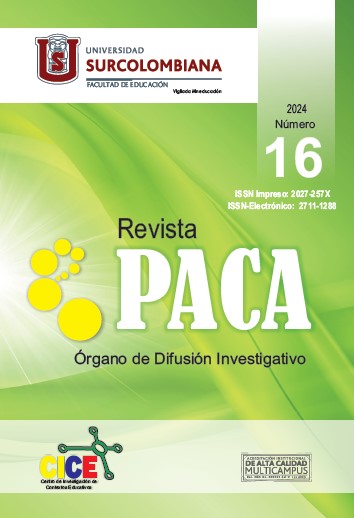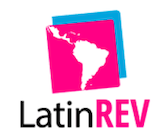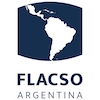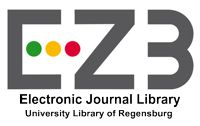Building citizenship from the school in the key of the bio-geo-poetics of living
##plugins.themes.bootstrap3.article.main##
The relationship with nature is increasingly mediated by utilitarian interests, therefore, far from respect and recognition of its transcendental nature. This permeates students' ways of seeing and interacting with nature. This research asks eighth grade
students, approximately 15 years old, to express their ways of relating to nature, inhabiting the earth, perceptions about their rights and duties as planetary beings, and how they believe and feel that they can to be citizens despite, or by virtue of, the same crisis. It was necessary to generate discussion spaces through video forums, posed dilemmas, in-depth interviews and focus groups, giving visibility and importance to the students' voice. An attempt was made to interpret these students' stories to facilitate the understanding of their ways of living, in the key of biogeopoetics; understand those ways of living manifested
in their stories, looking for training alternatives that allow reorienting school citizen education in favor of the appropriation of the good life.
Downloads
##plugins.themes.bootstrap3.article.details##
Appiah, K. (2007). Cosmopolitismo. La ética en un mundo de extraños. Buenos Aires: Katz Editores.
Aristóteles. (1930). Política. Madrid: Compañía Iberoamericana de Publicaciones.
Caudillo, F. G. (2012). Reflexiones sobre el buen vivir o el vivir bien. (suma qamaña, sumak kawasay, Balu wala. Temas de nuestra América).
Coccia, E. (2011). La vida sensible. Buenos Aires. Editorial Marea, p. 144.
Deslauries, J. (2005). Investigación Cualitativa. Pereira: Editorial Papiro.
Dilthey, (2004). La esencia de la filosofía. Buenos Aires: Losada.
Escobar, A. (2020). “Los desafíos de las Ciencias Sociales ante un mundo en transformación”. Ponencia presentada en el Panel presidencial en el Congreso de LASA 2020. University of North Carolina at Chapel Hill.
Fals Borda, O. (1998). Participación popular. Retos del futuro. Bogotá . ICESI IEPRI-Colciencias.
Francisco, P. (2015). Carta Enciclica Laudato Si. Sobre el cuidado de la casa común. Vaticano: Santa Sede.
Gadamer, Hans-Georg. (1991). Verdad y Método. Salamanca: Ediciones Sígueme.
García Márquez. G. (1999). “Por un país al alcance de los niños”. Barcelona: Mondadori.
Hegel, G. W. (1980). Propedéutica Filosófica. Caracas: Equinoccio.
Hume, D. (1992). Investigación sobre el entendimiento humano. Trad. Magdalena Holguín. Bogotá: Norma.
Kant, E. (1985). Tratado de pedagogía. Bogotá: Eds. Rosaristas. trad. Lorenzo Luzuriaga. http://cervantesvirtual.com/servlet/
SirveObras/64624069769043828593346/index.htm.
Kant, E. (1989). La Metafísica de las Costumbres. Madrid: Tecnos.
Leff, E. (2020). La crisis ambiental y el olvido de la vida. Cosmotheoros tras las máscaras de la naturaleza, una inmersión en lo impensable del mundo. Bogotá, volumen 1, número 1, julio-diciembre.
Meirieu, Ph. (2003). Frankenstein educador. Barcelona: Alertes S. A. de Ediciones.
Muriel Valencia, P. A. y Chacón Ramírez, C. A. (2022). Geo-poéticas del contacto en el aula-lugar: Pensamiento ambiental del joven en tiempos de crisis. Geo-poetics of contact in the classroom-place: Young people’s environmental thinking in times of crisis En: Zamudio Tobar, G. y Portilla Portilla, M. (eds. científicas). Huellas, contextos y saberes educativos: otras maneras de ser, hacer y pensar. (pp. 11-31). Cali, Colombia: Editorial Universidad Santiago de Cali.1 https://orcid.org/0000-0002-5795-2438
Noguera, A. P. (2011). Cuerpo-Tierra. Ethos ambiental en clave de la lengua de la Tierra. polis.
Noguera A. P. (2020). Ecofeminismo y Pensamiento Ambiental sur: Metodoestesis las sendas de la vida sensible.
Noguera, A. P. (2021). A nascent ontological-choreus-graphics geo-ethicalpoetics from Southern inhabitants (inhabitable): a nascent ethical proposal from Southern environmental thinking. DOI: https://doi.org/10.15446/ga.v24nsupl1.92379
Noguera, A. P. (2012). "Cuerpo - Tierra: El Enigma, El Habitar, La Vida". académica española.
Noguera, A. P. Villota, D. A. (2020). La Sustentabilidad como Vía alterna al Desarrollo en Latinoamérica. Potencias y Debilidades. Comprensión desde el Pensamiento Ambiental Estético-Complejo. Gestión y Ambiente, 23(1).
Rengifo, T. (2018). Del sujeto menos-preciado al cuerpo poiésico en la escuela. La subjetividad de la sombra. CINDE. Medellín, p. 104-145.
Rodríguez, G., Gil, J. & García, E. (1996). Metodología de la investigación cualitativa. Málaga: Aljibe.
Santos, B. (2020). La cruel pedagogía del virus. CLACSO. Ciudad Autónoma de Buenos Aires. Libro digital, PDF - (Masa Crítica / Batthyany, Karina).
Smith, R. (2004). Abstracción y finitud: Educación, azar y democracia. 9° Congreso Bienal de INPE: Universidad Complutense de Madrid.
Taylor, S. J. y Bogdan, R. (1992). Introducción a los Métodos Cualitativos de Investigación. Paidós. Buenos Aires.
Vargas, G. (2011). Formación y mundo de la vida. Conferencia pronunciada el 21 de noviembre de 2011. Bogotá: UPN.
Vierhaus, R. (2002). Formación (Bildung). Revista Educación y Pedagogía. Separata, Vol. XIV, mayo-agosto.
Wolf, M. (1982). Sociologías de la vida cotidiana. Madrid: Cátedra.
































